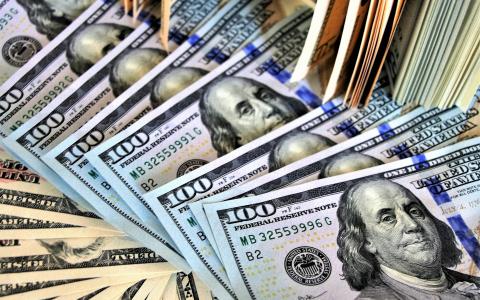
(Cryptosaurus) - Nebraska Examiner — Nearly 10 months after Lincoln businessman Aaron Marshbanks was found dead under suspicious circumstances, some things are becoming clearer in what is perhaps the largest bank fraud case in state history.
Over the past several weeks, a judge has certified more than $30 million in claims against the assets of Marshbanks, banks that they say were defrauded into issuing loans that were secured by financial assets that were were not in existence.
Another $22 million of claims, related to other loans secured with rental properties, have been resolved by the sale or return of real estate – including a semi-finished luxury home and barondominium being built in East Lincoln.
Legal disputes over life insurance proceeds
So far, only $318,000 in assets have been obtained to satisfy more than $30 million in claims from 15 banks and savings and loans, a business partner and the University of Nebraska Medical Center — which amounts to a return of about 1 cent on the dollar. enough for. ,
But another $3.5 million from life insurance policies taken out by Marshbank may also be used for creditors, according to Lancaster County court records. The policies listed a trust as the beneficiary instead of Marshbanks’ widow, prompting a legal dispute. There are also questions about whether the fraudulently obtained funds were used to pay insurance premiums. A judge will ultimately decide who gets the proceeds.
Omaha attorney Ed Hotz, who was tasked by a judge with finding the remaining assets of the estate to pay creditors, said he is working to determine how much of Marshbank’s ill-gotten gains went to cryptocurrencies and other Can be hidden in accounts.
He said he has identified some unusual assets — a condo in Puerto Rico, a house in Florida and partial ownership of an airplane — that will be liquidated to help pay creditors.
“I think we’ve done a lot in the last seven months,” Hotz said.
‘A unique case’
“This is a unique case. We are not quite sure what all the assets are,” he said.
Marshbanks’ death, and subsequent revelations about dozens of loans obtained by pretending to own investment properties through banks in Nebraska and Iowa that did not exist, sent shock waves through Lincoln and those who believed in this pious deity. Knew Christian.
People wondered how the 6-foot-6 former Lincoln Christian High School star basketball player, who was a former member of its school board and active in charitable work, could have fooled so many financial institutions?
Many of the loans were close to $2 million each and were made in the names of limited liability companies that he apparently formed to buy and rehabilitate rental homes in Lincoln and Omaha and as far away as New Orleans and Wyoming.
Some LLCs created had religious-sounding names, such as 1 Chronicles 29:11, which refers to a Bible verse that extols the greatness of God. A Wyoming-based company called Heavy Ventures was founded by an attorney who bills himself as one of the leading authorities on cryptocurrencies in a state that has been aggressively seeking investments in the digital currency.
federal indictment expected
The Nebraska Department of Banking, which is continuing the investigation, has said that the millions of dollars that Marshbank transferred to its financial advisor could be reduced to almost zero by the beginning of 2022 due to an “overly aggressive options trading strategy” by the advisor, Jesse Hill of Hickman. they were finished. ,
Federal criminal charges against Hill could be coming soon – civil lawsuits filed against him by a handful of banks hoping to recover their money have been suspended until next month “to allow the criminal case to proceed”. “, as stated in a lawsuit.
The Examiner first reported the story in December 2022, which has been described as possibly the largest bank fraud case in Nebraska history.
In previous stories, bankers have said that Marshbanks presented himself as a legitimate and persuasive businessman. He was sometimes accompanied by Hill, who produced a statement showing that Marshakbank had $6 million in his investment account.
But the examiner learned that some financial institutions refused to loan him money, asking for more proof that he actually had the collateral to borrow.
A banker told the examiner that a check of Marshakbank’s credit report should have shown a “red flag”—that it had multiple loans from multiple banks. But, he added, it also appears that he had more than enough money in some investment accounts to cover his debts.
It was only after Marshbanks was found dead that it was discovered that the financial statements had been forged and the accounts did not exist.
Hotz, who was appointed personal representative of the complex Marshbanks estate, said there were only a few cases left to establish who owed the estate money.
The work to find the remaining assets in the estate — a search that requires investigations across the country and in Puerto Rico — continues, he said.
“We continue to seek to identify and collect assets,” Hotz said. Some of them may have to file some lawsuits to recover, he said.
It is difficult to estimate how much time this may take and when the creditors will get partial payment, he said.
“I’m expecting to recover millions of dollars,” Hotz said.
The Nebraska Examiner is part of the State’s Newsroom, a network of news bureaus supported by grants and a coalition of donors as a 501c(3) public charity. The Nebraska Examiner maintains editorial independence.
Editor’s Note: This article has been modified to correct the amount of returns to banks based on the assets received so far.
By Rodney Holmes



